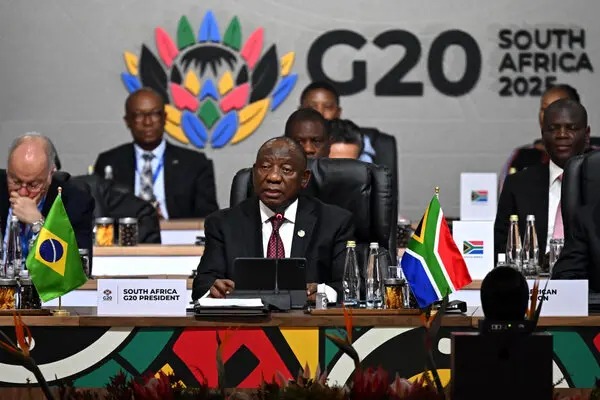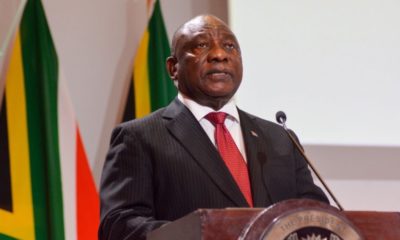News
Will South Africa’s G20 Summit Deliver Real Economic Gains or Just Global Spotlight

A week after the G20 Summit wrapped up in South Africa, the big question lingering in business circles is simple. Will all the fanfare translate into something the country can actually feel?
The event put South Africa on the world stage. Leaders, diplomats, and global investors packed conference halls and television screens. Yet the moment the final motorcade pulled away, the debate ignited. Some analysts are urging patience, while others argue that economic reality on the ground has hardly shifted.
What we can say for certain is that the summit has stirred new energy, especially in tourism and long-term positioning. Whether that turns into measurable growth will depend on what South Africa does next.
Short-term calm and long-term hopes
Economist Ulrich Joubert has been straightforward. The markets did not jump. Investment numbers did not suddenly shift. He believes the immediate economic impact is minimal because the forces shaping South Africa’s markets are rooted in domestic policy rather than summit speeches.
Recent gains in confidence and the rand’s performance, he explained, were driven by the latest medium-term budget policy statement and a modest lift in the country’s credit rating. Not by the summit. Structural hurdles still stand in the way of major investment decisions. These include tight labour regulations, skills shortages, and uncertainty around issues such as mining rules and property reform.
In other words, global attention alone cannot fix deep-seated challenges.
Growing curiosity from investors
Dawie Roodt, chief economist at Efficient Group, echoed the caution but added an important nuance. Although markets dipped slightly during the summit, this simply mirrored international trends. Behind the scenes, he has noticed more interest from foreign investors, particularly in South Africa’s bond and equity markets.
However, these are mostly financial positions rather than physical investments that create jobs. Large-scale commitments remain rare because infrastructure reliability and local governance still worry many investors. The interest is real, but it needs a stronger base to develop into long-term projects.
A strategic win for diplomacy and influence
Some analysts take a wider view. Raymond Parsons from the North West University Business School argues that hosting the G20 was about more than the week of meetings. He sees the event as a strategic platform that elevates South Africa’s diplomatic voice and aligns the country with global conversations on African debt, development finance, and economic reform.
He points out that South Africa’s recent removal from the Financial Action Task Force grey list, followed by a positive reaction to the latest budget policy statement, has already strengthened confidence. The summit built on that momentum and signalled that South Africa is capable of leading discussions that matter to both Africa and the world.
Still, Parsons emphasises a crucial point. Momentum without policy action cannot deliver growth. For the summit to have a lasting impact, South Africa needs visible reforms and consistent implementation.
Tourism shines as the early winner
While economists argue over long-term effects, one sector is already celebrating. Tourism experienced a surge that coincided with the presidential year and the summit itself. South African Tourism spokesperson Sinethemba Dywili has confirmed a measurable rise in arrivals.
In October 2025, the country welcomed more than nine hundred and twenty-seven thousand visitors. This represents a thirty-two percent increase compared with the previous year. From January to October 2025, more than eight and a half million travellers entered the country. This is one point three million more than the same period in 2024.
These numbers translate into real money. The G20 lead-up generated more than one point two billion rand in direct tourism revenue, with hotels and hospitality seeing the biggest lift. A full economic study is still underway, but early data show that the summit gave the sector a powerful push.
Tourism Minister Patricia de Lille also used the moment to launch the first G20 Tourism Investment Summit on five September. Eight new tourism projects worth nearly one billion rand were presented to investors. These include developments in Table Mountain National Park, Menlyn, Mpumalanga, Buffalo City, the Kruger National Park, and the Eastern Cape. These projects promise both strong commercial returns and direct community benefits.
This is where the summit has already made a visible difference.
Reputation, credibility, and the road ahead
Politically, the country scored points. Successfully hosting an event of this scale has reinforced South Africa’s image as a reliable global events destination. Delegates left as informal ambassadors, carrying impressions that can shape future travel and investment choices.
Yet the broader economic outcome will depend entirely on what happens after the headlines fade. Analysts agree that policy consistency, improved governance, and tangible reforms are essential. With these pieces in place, the diplomatic and reputational gains from the G20 can evolve into the investment South Africa needs.
Without them, the summit will be remembered more for symbolism than for change.
Also read: Public Debt Overshadows Health and Social Spending in SA’s 2023/24 Budget
Follow Joburg ETC on Facebook, Twitter, TikT
For more News in Johannesburg, visit joburgetc.com
Source: IOL
Featured Image: The New York Times



















